Put Trash Where It Belongs
Bagging Your Trash
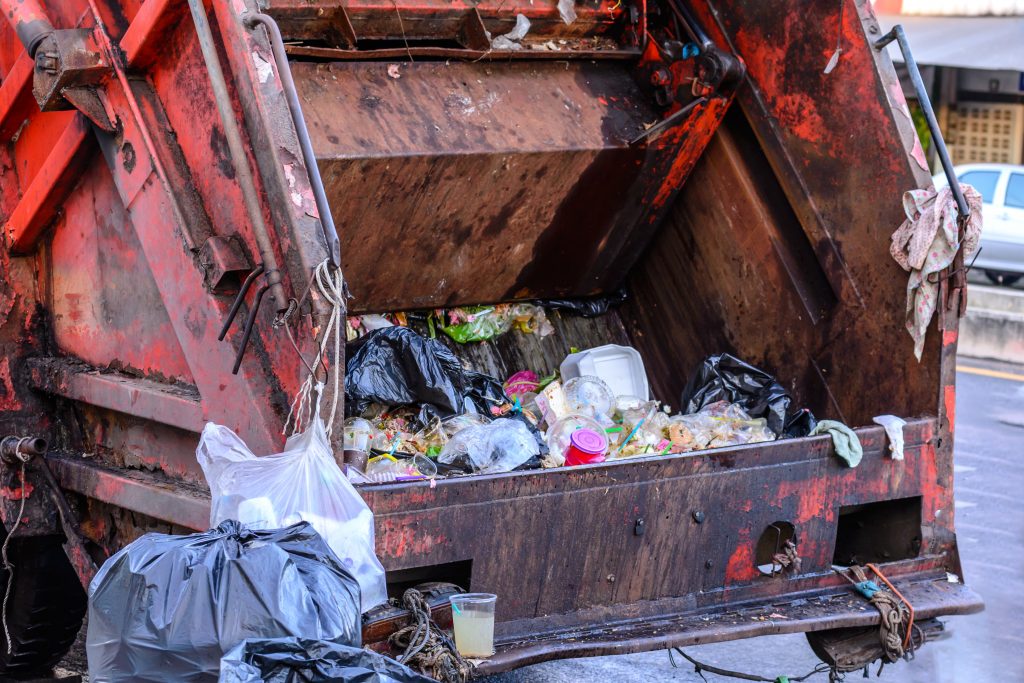
It’s a weekly routine – gather all the indoor trash, put it in a large bag, tie it, take it outside to the collection bin, and wheel it to the curb. But what happens when you drop loose trash in those trash bins that go to the curb or in public trash cans that don’t have a bag lining them? Here are four reasons why you should ALWAYS make should your trash is going into a bag.
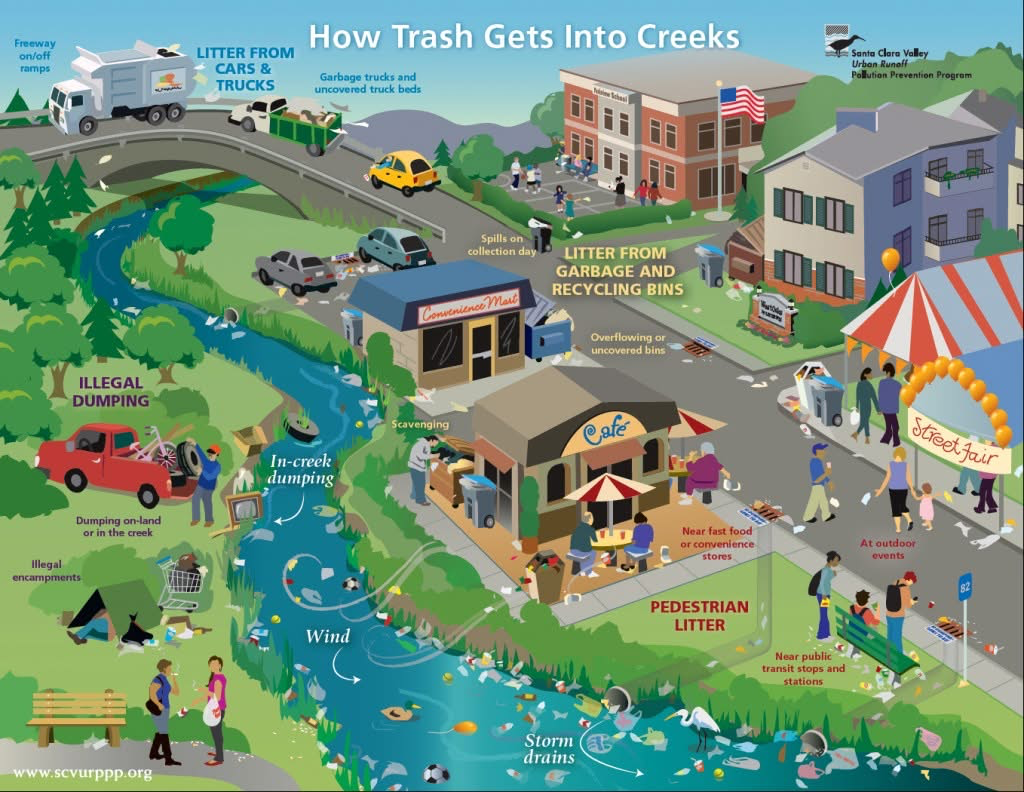
Bag It for Containment
If you’ve ever followed a garbage truck you might have noticed that the back where all the trash is held isn’t always closed. It doesn’t take much wind to loosen that trash and blow it out. And if a piece of trash or two or ten happens to fly out the back, the driver probably isn’t going to stop and pick it up. This trash ends up as litter that is scattered throughout the community as the garbage truck continues on its route to the dump.
This same thing can occur at our residences. Unbagged trash can easily blow away during the dumping process, leaving it to collect in our streets and wash into our waterways. Bagging trash before it goes in the collection bin eliminates the chance for loose pieces to fly away from the truck and become litter.
Bag It for Safety
Nowadays most garbage trucks are equipped with an arm that grabs the bin and lifts it to dump it in the truck’s hold. Loose trash left by the bins requires the truck operator to get out of the truck and pick it up. This exposes the operator to germs, glass, nails, and even syringes/needles.
Bag It to Keep the Can Clean
No one likes the smell of a grungy trash can. Regular use tends to result in the buildup of dirt and grime which can eventually grow mold and attract insects and other critters. Add in some hot summer weather and high humidity, and you’ll want to put on a gas mask before heading to the bin. Keeping all that trash in a bag will help keep odors, critters, and other growth at bay.
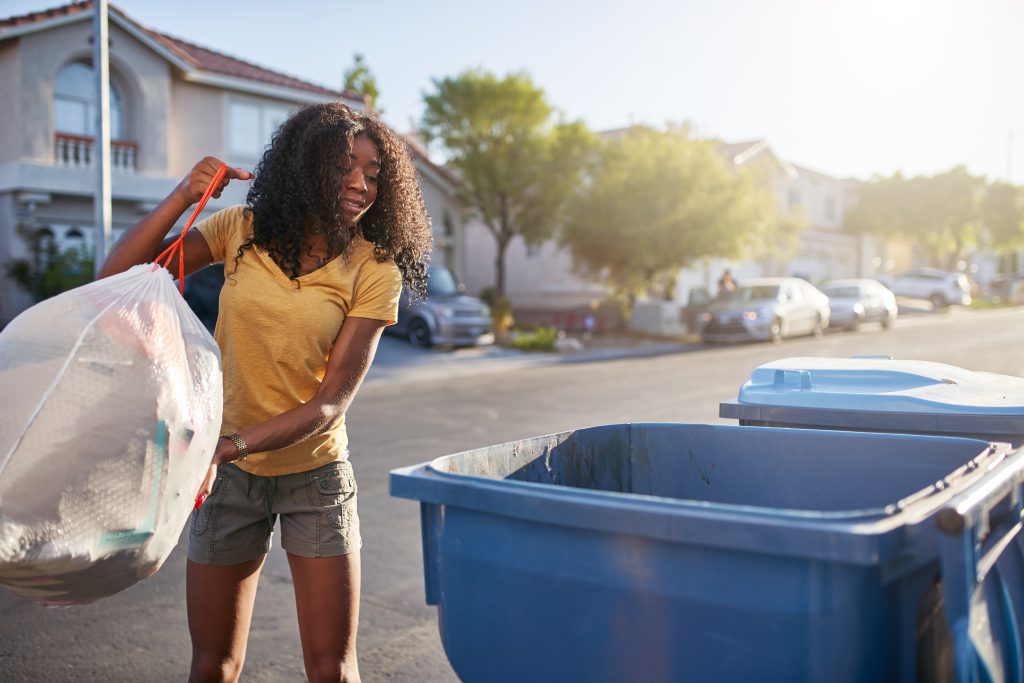
Heavy Trash and Tox Drop Days
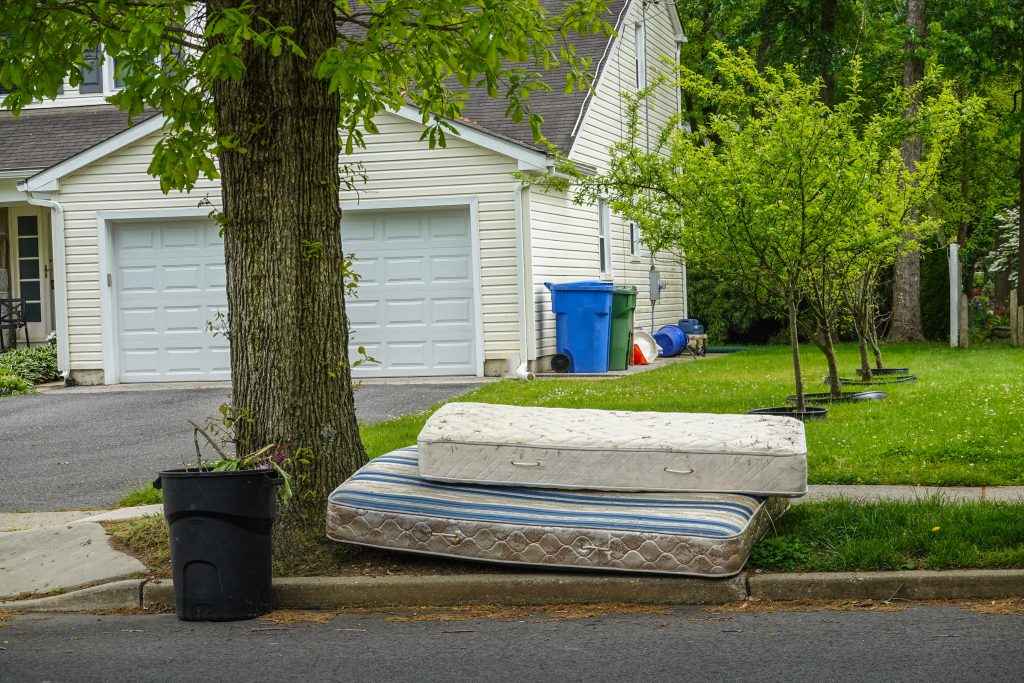
Your city, town, or county might provide a heavy trash pick-up or tox drop day. This is different than your weekly trash pick-up day and is designed to remove those items that don’t fit into the normal trash removal process or household hazardous waste products.
Heavy Trash
Heavy trash items are typically common household items that won’t fit in your trash bin.
These items might include:
- Household furniture – chairs, sofas, loveseats, etc.
- Mattresses and box springs
- Construction materials
- Carpet
- Wood
- Garden refuse
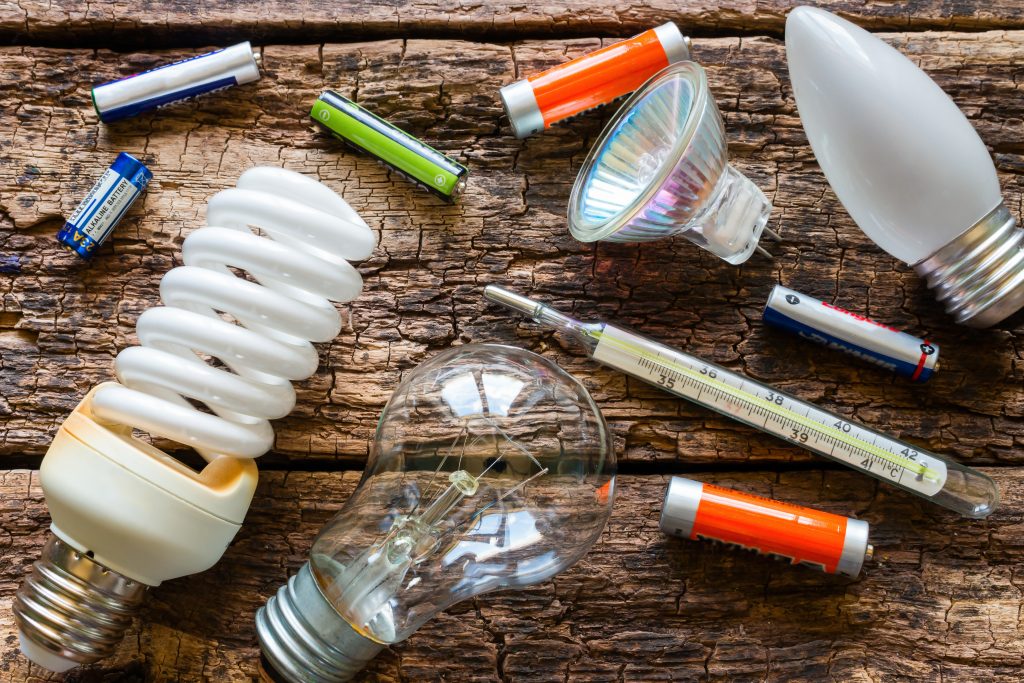
Tox Drop
Often referred to as Tox-Away Days, Tox Drops were created to protect workers, neighbors, wildlife, and our waterways. It is very important to properly dispose of hazardous materials as they often contained toxic materials that harm the environment and impact human immune systems.
Tox Drop items include:
- Chemicals
- Batteries
- Medicines
- Tires
- Electronics
- Large Appliances
Special recycling programs (e-cycling) are often available for electronics. In addition, many pharmacies and police stations will take back unwanted, unused, or expired medications. The Indiana Household Hazardous Waste Task Force website is a great resource for learning about the different types of waste around your home and how to properly dispose of them.
The best way to find out about Heavy Trash or Tox Drop Days in your area is to contact your local city, town, county, or waste disposal service. You can also find out more from your local Solid Waste Management District (SWMD).